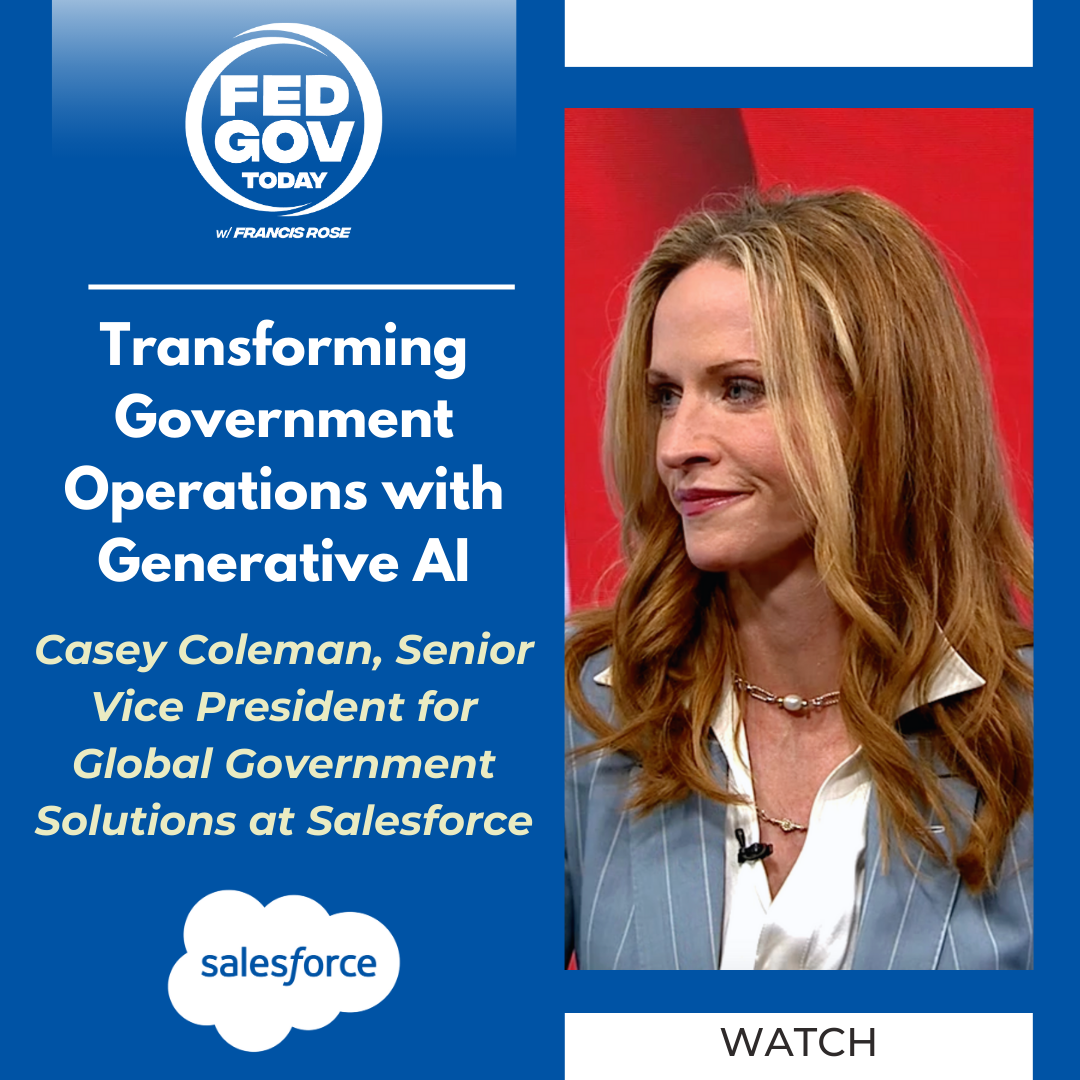Presented by Microsoft
 Vishal Amin, General Manager of Defense Security at Microsoft, offers a deep dive into the dual role of artificial intelligence (AI) in cybersecurity in his interview for the special Fed Gov Today Podcast episode, "Innovating on the Frontlines: Securing the Future with AI and Cybersecurity." He elucidates how AI can be both a powerful tool for enhancing cybersecurity measures and a target that requires robust protection.
Vishal Amin, General Manager of Defense Security at Microsoft, offers a deep dive into the dual role of artificial intelligence (AI) in cybersecurity in his interview for the special Fed Gov Today Podcast episode, "Innovating on the Frontlines: Securing the Future with AI and Cybersecurity." He elucidates how AI can be both a powerful tool for enhancing cybersecurity measures and a target that requires robust protection.
Amin begins by emphasizing the critical importance of securing AI systems themselves. He explains that protecting AI involves comprehensive measures such as access controls, encryption, regular audits, and updates. A major focus is on the robustness of training models, which must be trained on diverse, high-quality data to minimize biases and vulnerabilities. Amin underscores that securing AI is not a one-time effort but a continuous process of auditing and training to ensure these systems remain resilient and trustworthy.
One of the key points Amin makes is the necessity of explainability in AI models. For AI systems to be effectively integrated into cybersecurity frameworks, they must be understandable and transparent. This allows security professionals to trust and verify the AI’s decision-making processes. Explainability is crucial not only for operational effectiveness but also for addressing ethical and privacy concerns, which are paramount in the deployment of AI technologies.
Amin transitions into discussing how AI can be applied to cybersecurity, highlighting several key areas. Predictive analytics is one of the foremost applications, where AI can analyze patterns and predict potential security threats before they materialize. This proactive approach allows organizations to strengthen their defenses and respond to threats more efficiently.
Another significant application is in automated response systems. AI can automate routine tasks, such as responding to common cyber threats, thereby freeing up human resources to focus on more complex issues. This automation can significantly enhance the speed and effectiveness of cybersecurity operations.
Enhanced threat detection through behavioral analysis is another area where AI proves invaluable. AI systems can monitor and analyze user behavior to detect anomalies that might indicate a security breach. This real-time analysis can help in identifying and mitigating threats swiftly, reducing the potential damage from cyber-attacks.
Amin also touches on the challenges posed by the acquisition process in the public sector. He acknowledges that the traditional procurement cycles can hinder the rapid deployment of cutting-edge AI technologies. To overcome these challenges, Amin advocates for stronger public-private partnerships. He believes that collaboration between the government and industry is essential for bringing innovative AI solutions to the federal sector more quickly and effectively.
In this context, Amin praises the efforts of companies like Microsoft and its peers in the tech industry, which are investing heavily in AI research and development. He highlights a recent partnership between Microsoft and Forescout Technologies, aimed at integrating AI and machine learning capabilities to enhance cybersecurity solutions. Such collaborations, Amin notes, can accelerate the adoption of AI in government agencies and help address the unique security challenges they face.
Throughout the interview, Amin consistently underscores the importance of continuous improvement and adaptation in the cybersecurity landscape. He points out that the threat environment is constantly evolving, and so must the strategies and technologies used to counter these threats. Continuous auditing, training, and updating of AI systems are essential to keep pace with the changing dynamics of cybersecurity.
Amin concludes by emphasizing the need for a balanced approach that integrates innovation with ethical considerations. He calls for responsible use of AI, ensuring that while leveraging its capabilities, we also address the ethical, privacy, and security concerns associated with it. This balanced approach, he believes, is crucial for harnessing the full potential of AI in cybersecurity, ensuring a safer digital future for all.
Vishal Amin’s insights provide a comprehensive overview of the current trends and future directions in AI and cybersecurity. His emphasis on securing AI systems, applying AI to enhance cybersecurity measures, and fostering public-private partnerships offers a strategic roadmap for leveraging AI in defending against cyber threats.



